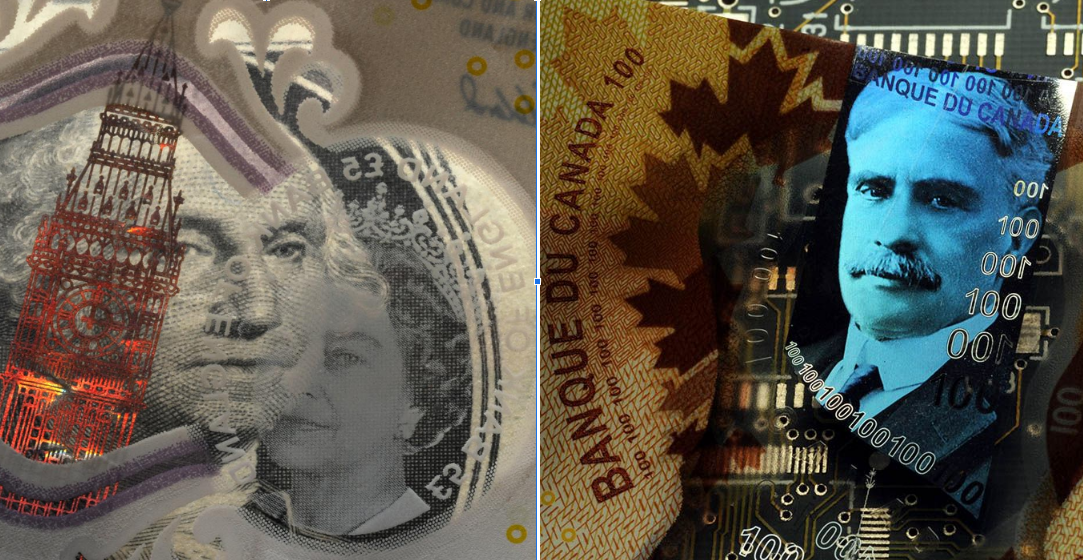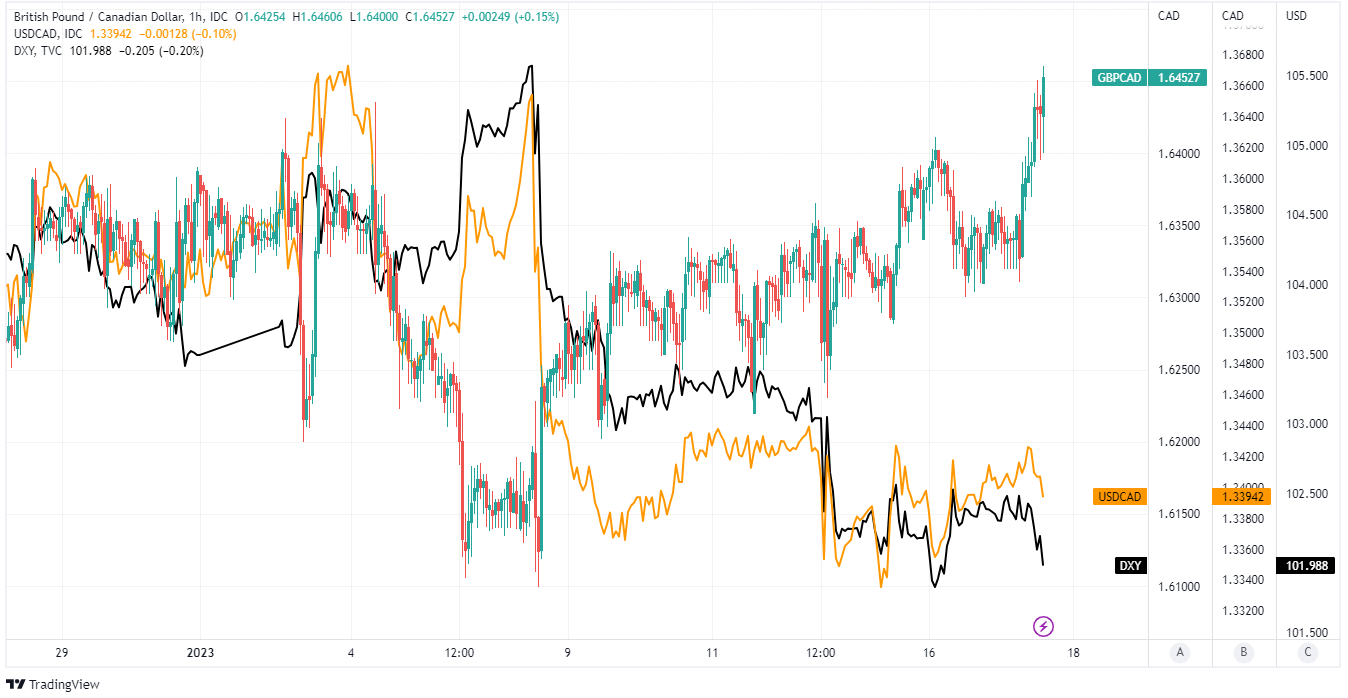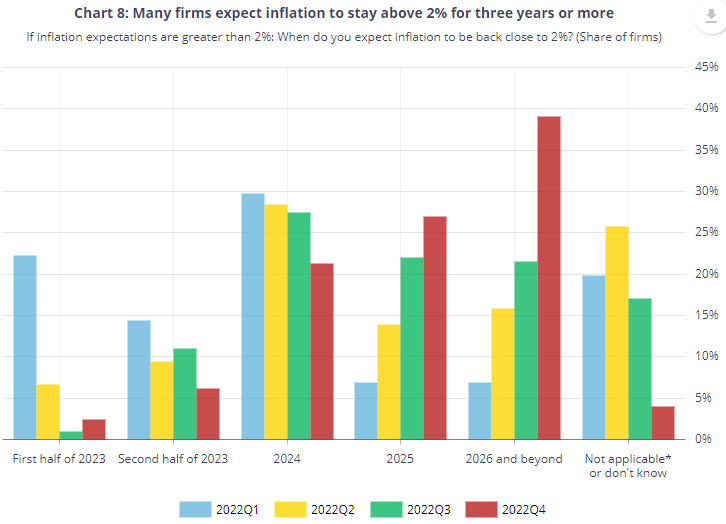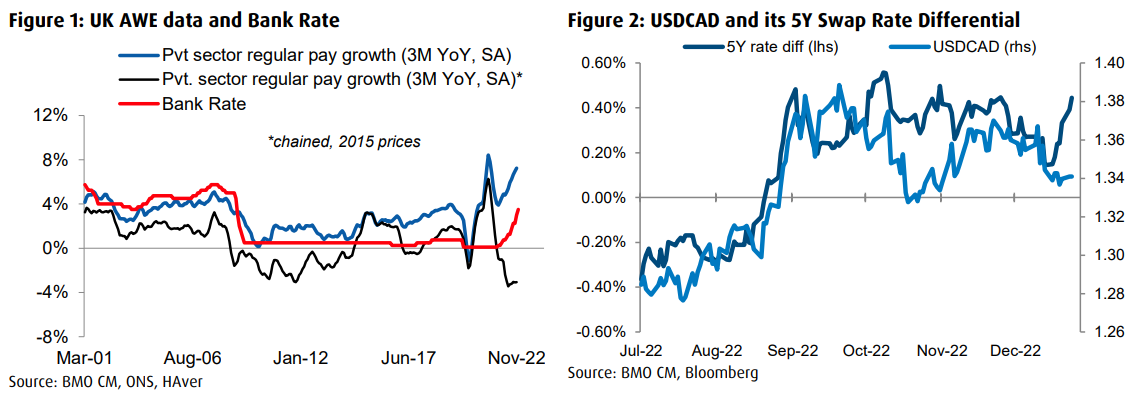Loonie's Inflation Surprise Aiding GBP/CAD Exchange Rate's Rise
- Written by: James Skinner
"That has to be a concern for policymakers who have made a clear, public effort to assure Canadians that price stability will be achieved" - Scotiabank.

Image © Pound Sterling Live
The Pound to Canadian Dollar exchange rate reached one-month highs after Canada's inflation rates fell further than was expected for the month of December in what is another sign of the Bank of Canada (BoC) having success in steering price growth back toward its two percent target.
Canada's Dollar lagged behind other major currencies on Tuesday both before and after Statistics Canada said inflation had fallen from 6.8% in November to 6.3% during December in what was a downside surprise for an economist consensus that had looked for an annual rate of 6.4%.
Much of the decline resulted from falls in energy and fuel prices with the more important core inflation rate, which overlooks those two things, falling by only 10 basis points from 5.4% to 5.3% while the BoC's various adapted measures of core inflation each surprised on the upside of expectations.
"When excluding the increase in mortgage interest costs, which reflect the rapidly rising interest rates, things look better," writes Karyne Charobonneau, an economist at CIBC Capital Markets, in review of the data.
"Overall, this report is largely as anticipated and we therefore continue to expect the Bank of Canada to raise rates by 25 bps next week before pausing for the rest of the year," she adds.
 Above: GBP/CAD at hourly intervals alongside U.S. Dollar Index and USD/CAD. Click image for closer inspection.
Above: GBP/CAD at hourly intervals alongside U.S. Dollar Index and USD/CAD. Click image for closer inspection.
Compare GBP to CAD Exchange Rates
Find out how much you could save on your pound to Canadian dollar transfer
Potential saving vs high street banks:
C$4,450.00
Free • No obligation • Takes 2 minutes
With rising mortgage costs aside, clothing, footwear, health and personal care supplies were noted prominently for rising prices and so also kept core inflation from falling further over the course of December.
There is a growing consensus among economists that inflation could fall more rapidly in the months ahead while the results of the latest Bank of Canada Business Outlook Survey released on Monday were encouraging of this.
"Many firms" told the BoC their price increases are set to reduce in size and frequency and that expectations for faster wage growth were less widespread in what are signs of tentative success in the BoC's bid to reduce inflation.
But the survey also warned that many businesses expect inflation to remain above the 2% target for three years or more, meaning they believe the BoC is too optimistic in assuming price growth will return to the target in 2024.
"That has to be a concern for policymakers who have made a clear, public effort to assure Canadians that price stability will be achieved," says Shaun Osborne, chief FX strategist at Scotiabank.
 Source: Bank of Canada. To protect or boost your international payment budget you could consider securing today's rate for use in the future, or set an order for your ideal rate when it is achieved, more information can be found here.
Source: Bank of Canada. To protect or boost your international payment budget you could consider securing today's rate for use in the future, or set an order for your ideal rate when it is achieved, more information can be found here.
So while Tuesday's data potentially makes it more likely the BoC will pause its interest rate cycle up ahead, this is a long way from being assured.
"Our rotating financial factor model gives very little weight to its best interest rate differential (IRD), which is presently the 5Y tenor. As shown in Figure 2, that IRD has made a substantial move in the USD's favor over the past week, but it hasn't been able to drag USDCAD higher," says Greg Anderson, global head of FX strategy at BMO Capital Markets.
"CFTC data suggests that leveraged funds are already long-USDCAD, so they may have limited further capacity to buy here. With our model's fair value presently at 1.3527, we still somewhat favor a bounce back up above 1.3500 this week, but our conviction on that is relatively low," Anderson writes in Tuesday commentary.
Tuesday's Canadian data followed Office for National Statistics figures suggesting a sturdy December labour market in which pay growth for workers in the UK remained at levels that might be a cause for concern for the inflation-targeting Bank of England (BoE).
All of this precedes the Wednesday release of December inflation figures from the UK where the annual pace of price growth is seen falling from 10.7% to 10.5% and 6.3% to 6.2% once energy and food items are removed from the basket of goods for which prices are analysed.
 Source: BMO Capital Markets. To optimise the timing of international payments, consider setting a free FX rate alert here.
Source: BMO Capital Markets. To optimise the timing of international payments, consider setting a free FX rate alert here.




